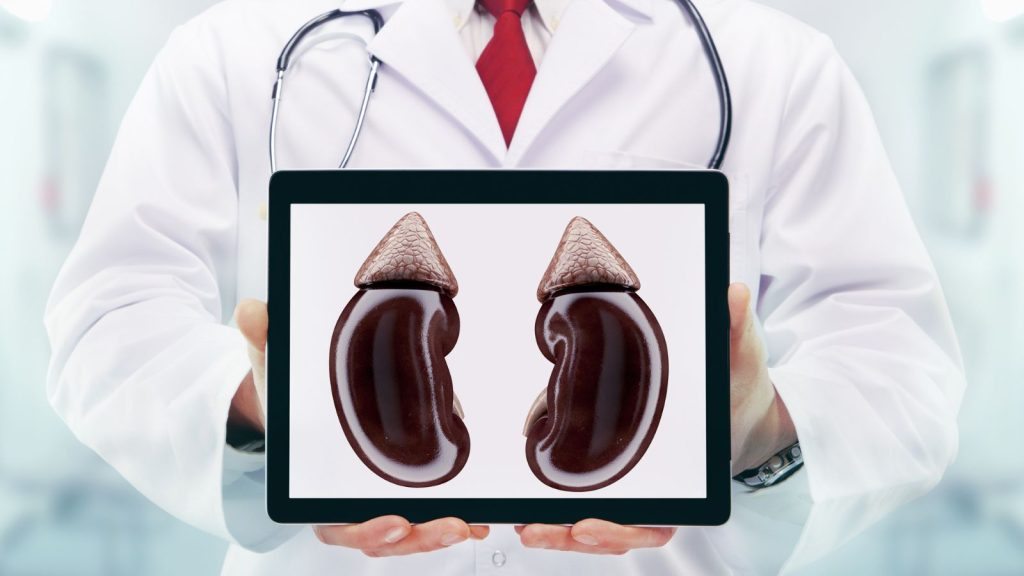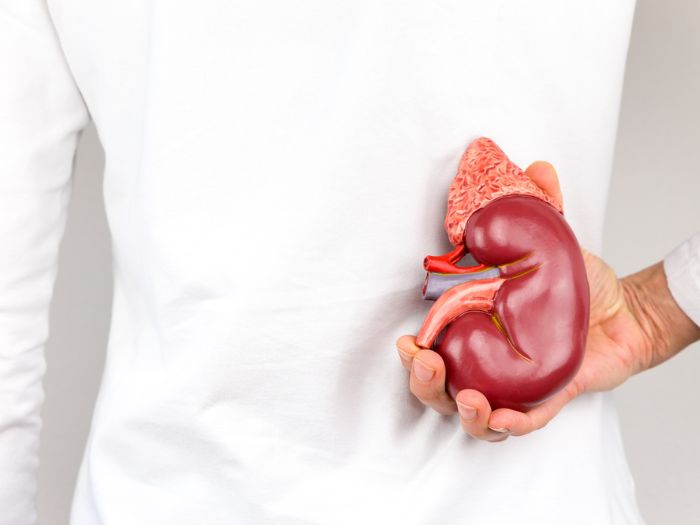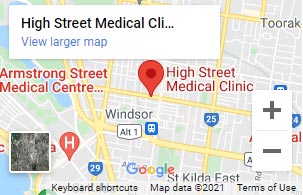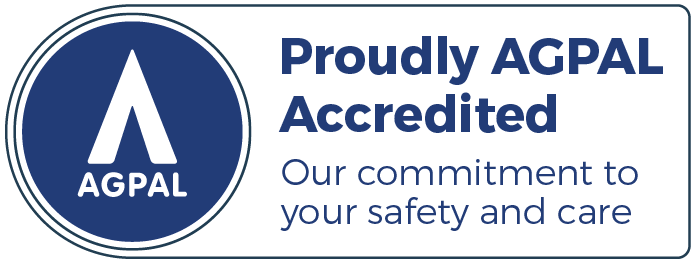May marks many things; Star Wars Day (May the fourth (be with you)), Mother’s Day and importantly, Kidney Health Week.
Kidney Health Week promotes efforts to reach and engage the 1.8 million Australians who are unaware they live with kidney disease.
✅ That’s right, “who are unaware they live with kidney disease”.
In this article, we discuss:
- The super-important functions of kidneys
- Risks to kidney health
- Identifying kidney problems
- Keeping your kidneys healthy
Kidneys and their super-important functions
The kidneys are a pair of bean-shaped, or curved oval organs located in the lower back.

They are responsible for removing waste and excess fluid from the body and play a crucial role in maintaining the body’s internal environment. For example:
- Regulating fluid and electrolyte balance
- Producing hormones that control blood pressure
- Stimulating the production of red blood cells
To get the job done
The kidneys filter blood through a complex system of tiny blood vessels called nephrons, which are the functional parts of the kidney.
Each nephron consists of a small bundle of capillaries (known as a glomerulus) that filter waste and fluid from the blood, and a tubule, a long and winding tube that reabsorbs valuable substances such as glucose, salt, and water back into the bloodstream.
The remaining waste and excess fluid are removed from the body in the form of urine.
The kidneys also adjust the amount of water and electrolytes excreted in the urine, depending on the body’s needs.
For example, if a person is dehydrated, the kidneys will retain more water and excrete less urine to conserve fluids.
In short: The kidneys work by filtering blood, reabsorbing valuable substances, and eliminating waste and excess fluid to maintain the body’s internal environment.
However, the kidneys can be vulnerable to damage
Your kidneys can suffer strain and damage, some permanent, if you put them at risk.
When damaged, their ability to filter blood and maintain fluid balance is compromised which can lead to a build-up of toxins and fluids in the body.
You certainly don’t want that.
A build-up of toxins can cause a range of symptoms, such as:
- Fatigue
- Edema (swelling due to fluid trapped in body tissue)
- High blood pressure
These can even be life-threatening in severe cases.
Below are some of the things that damage kidneys
Smoking
Smoking damages blood vessels and reduces blood flow to the kidneys, leading to kidney damage over time. You’re always better off NOT smoking (inc. vaping) as it causes a lot of damage to your body and wallet.
High blood pressure
Damages the blood vessels in the kidneys, impairing their ability to filter waste and fluids from the body.
Diabetes
High blood sugar levels can lead to kidney damage and kidney failure.
Overuse of painkillers
Long-term use of painkillers can damage the kidneys and increase the risk of kidney failure.
Heavy alcohol consumption
Drinking too much alcohol can damage the kidneys and lead to kidney disease.
Exposure to toxins
Exposure to certain chemicals and toxins such as lead, mercury, and solvents can damage the kidneys.
Kidney stones
Repeated formation of kidney stones can damage the kidneys and impair their function over time.
FYI: A healthy diet with minimal junk food can significantly reduce the risk of kidney stones.
Infections
Certain infections such as urinary tract infections (UTIs) and kidney infections can damage the kidneys if left untreated.
Genetic factors
Some people may be born with genetic issues that increase their risk of developing kidney disease.
It’s essential to take care of your kidneys with a healthy lifestyle, staying hydrated, and monitoring any underlying health conditions that may affect their function.
Identifying kidney problems
Identifying kidney problems early on is crucial for successful treatment and management.
Changes in urination patterns
One of the most common signs of kidney disease is a change in urination patterns. This can include an increase or decrease in the frequency of urination, changes in urine colour or appearance, or difficulty urinating.
Other signs of kidney problems
- Swelling in the feet, ankles, or hands
- Fatigue (when you normally wouldn’t feel tired)
- Nausea and/or vomiting
- Loss of appetite
- Trouble sleeping
In some cases, kidney problems may also cause high blood pressure, which can further damage the kidneys if left untreated.
If you are experiencing any of these symptoms, get in touch with us for a checkup.
Conditions that can make kidney problems more likely or more serious:
- Diabetes
- High blood pressure
- Family history of kidney problems
Keeping your kidneys healthy
Keeping your kidneys healthy is a must. Did you know that it’s very difficult to know if you have kidney problems?
😯 In fact, if you’re in the early stages of kidney problems, you’ll likely feel completely normal. You can actually lose up to 90% of kidney function BEFORE symptoms appear.
Here are some tips on keeping your kidneys healthy
Stay hydrated
One of the most important steps in maintaining kidney health is staying well-hydrated by drinking plenty of water throughout the day. That’s water, not coffee, soft drinks or alcohol.
Eat healthy
A healthy diet that’s low in sodium and processed foods but high in fruit, vegetables and whole grains can also help reduce the risk of kidney problems.
Exercise gets a big tick too
Regular exercise and maintaining a healthy weight also helps kidney health. Make sure you take some time to regularly exercise, including:
- Jogging
- Bike riding
- Team sports
- Hiking
- Water sports
There are many ideas that can easily be incorporated into socialising too.
Keep on top of health conditions
Managing underlying health conditions such as diabetes and high blood pressure minimises stress and potential damage to your kidneys.
Other ways to keep your kidneys healthy
- Avoid smoking (inc. vaping)
- Limit alcohol
- Take medications as prescribed
- Speak with a healthcare professional before taking any new medications or supplements (some can be harmful to kidney function)
- Get regular check-ups with a healthcare professional
And importantly, know where your health stands
Many people don’t know how their health stacks up, something commonly answered with a thorough checkup that includes a blood test.
If it’s been a while since your last health check, get in touch with us today.
Kidney health in summary
Your kidneys are a key component in a healthy and happy life, so taking care of them and monitoring them is a must.
Furthermore, early detection and management of kidney problems can help prevent more damage.
Make sure your kidneys have the best chance of doing what they do best: keeping you healthy on the inside so you can enjoy life on the outside.
The first steps? Make healthy adjustments to your routine and know where your health stands by getting a checkup with the professionals practising at High Street medical Clinic.












